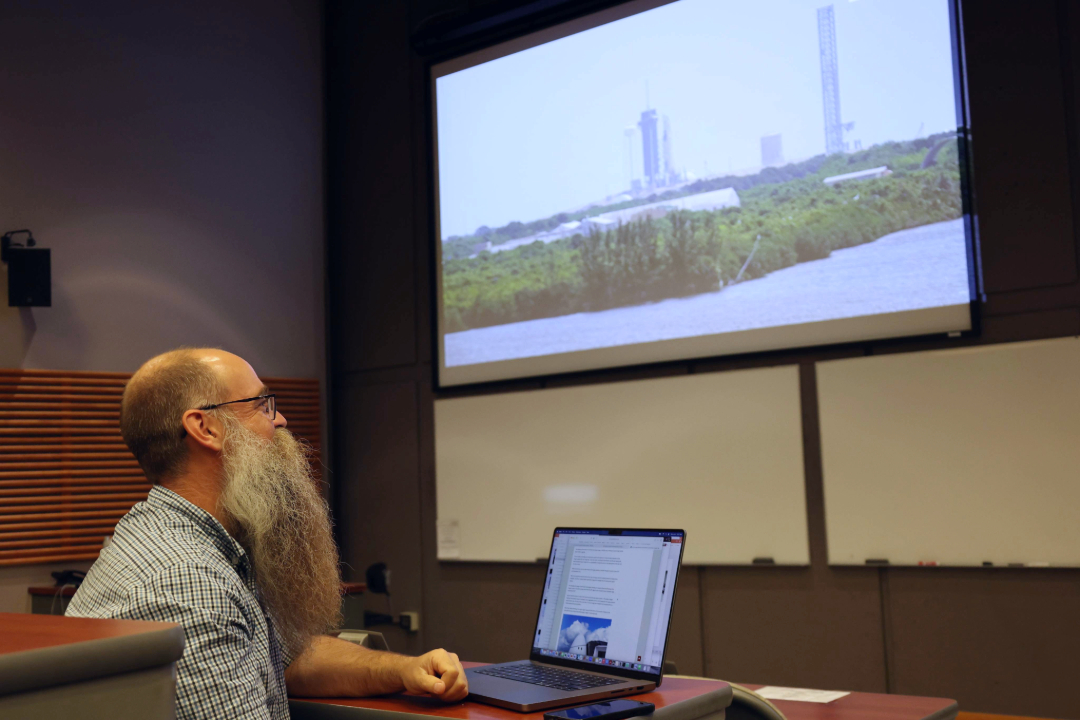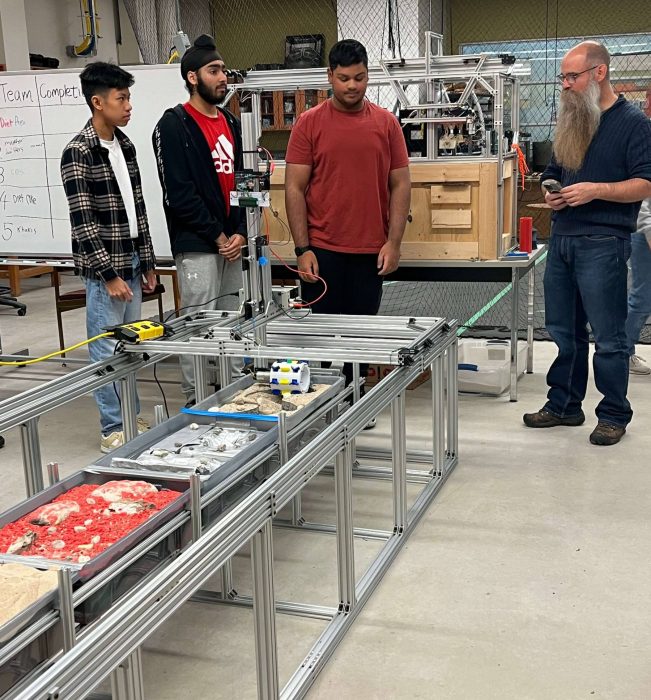
STARlab director elected as Fellow
Dr. Philip Ferguson joins the Canadian Academy of Engineering
Dr. Philip Ferguson, associate professor in the Department of Mechanical Engineering and the founding director of the Space Technology and Advanced Research Laboratory (STARlab) at the University of Manitoba (UM), has been formally elected as a Fellow of the Canadian Academy of Engineering (CAE), a professional honour in the field of engineering in Canada based on his outstanding contributions to aerospace engineering, with a career spanning over 25 years. Through his meaningful work, Ferguson has also been an extraordinary role model for students at the Price Faculty of Engineering.

Dr. Philip Ferguson with some of his team’s drones and spacecraft
Throughout his career, Ferguson has made a lasting impact on every project, institution and organization he has been a part of. He has played key roles in the ArcticSat mission, the Iris CubeSat project, and the Arctic Community Connectivity for Equity, Sustainability, and Service (ACCESS) project. With a focus on collaboration with Indigenous communities, Ferguson leads research focused on aerospace technologies that improve system reliability.
As principal investigator for the ArcticSat mission, Ferguson led the project for Canada’s first-ever co-developed satellite, built in partnership with the Inuit community of Chesterfield Inlet, Nunavut. This mission embodies his unique approach to research, as he wishes to explore alternative ways of understanding through community collaboration. A similar approach has been taken for the ACCESS project, which seeks to provide support to northern communities through the implementation of improved high-bandwidth data infrastructures and large tracking airships.
Speaking about his research team and its impact, Ferguson said “I’m honoured to have the opportunity to work with a diverse and talented research team including community members, students, staff and faculty at the University of Manitoba. Our research makes it possible for communities to confidently embrace co-developed aerospace technology for a more resilient and prosperous future, even in the face of climate change and challenges to community security and sovereignty”.
Beyond his research and lab work, Ferguson has also made major contributions to Canada’s aerospace industry. His leadership at Magellan Aerospace led a $2 million research project into space radiation protection technologies, which has since been implemented on interplanetary spacecraft. He also developed and maintained the control systems for Canada’s first two space telescopes: MOST and NEOSSat, achieving pointing stability within 1/5000th of a degree, which was revolutionary for its time.

Youth outreach activity in STARlab
Ferguson has also been recognized for his outstanding contributions to education. Committed to making engineering more accessible and less intimidating for youth, he regularly hosts hands-on activities to spark early interest in the field of engineering, such as his annual participation in UM’s Science, Engineering and Technology Day and high school outreach and recruitment initiatives within the faculty.
One notable example is his collaboration with other institutions for the CubeSat Project. The goal of the CubeSat Project was to give students from post-secondary institutions the opportunity to take part in a real space mission by designing and operating their own miniature satellite. The satellite project, led by engineering students in STARLab, was selected by the Canadian Space Agency (CSA) for deployment to the International Space Station. This was the first time a UM design was selected by the CSA since it began its CubeSat Project in 2018. The UM team partnered with York University, the University of Winnipeg, Interlake School Division, and Magellan Aerospace on a variety of aspects for the development of Iris which was successfully launched in the summer of 2023.
“I have always been interested in aerospace engineering, and Phil’s lab makes it accessible. Phil’s lab strives to provide space access to a wider range of groups, while also building excitement and inspiring the next generation of engineers. A highlight during my time was witnessing the launch of our lab’s first satellite aboard a Falcon 9 rocket. We were invited to watch the launch from a NASA support building!”, said Brendan, a computer engineering master’s student who has been working under Phil’s supervision for the past 3 years.
Ferguson’s election as a Fellow of the CAE is a testament to the impact of his work and his unwavering commitment to innovation, community collaboration, youth development and advancing the field of aerospace engineering. The Price Faculty of Engineering proudly congratulates Philip Ferguson on his well-deserved honour as the newest fellow of the CAE.






